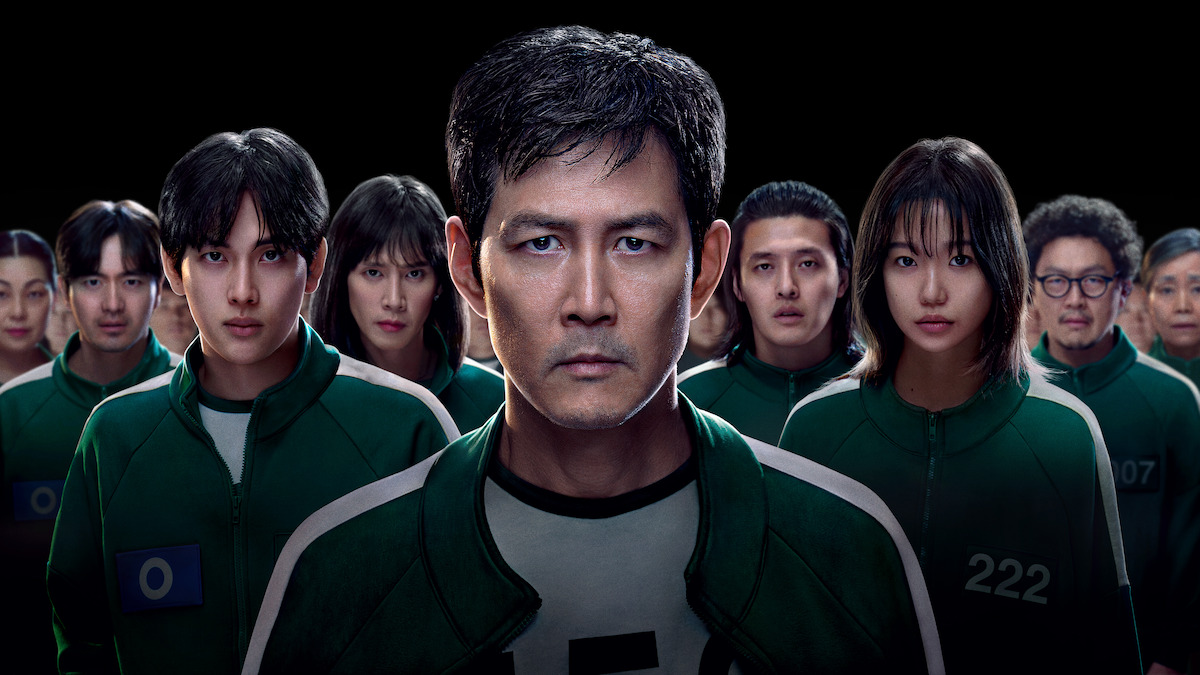“Squid Game” dominated Netflix with the release of its first season in 2021, quickly becoming the platform’s most-watched series of all time. Now, with the release of its second season, fans have been excited for the show to return to their screens. However, recent controversies involving some of the male actors from the series have complicated the reputation and future of the show.
O Yeong-su, the 79-year-old actor who gained international fame as player 001 in season one, even winning a Golden Globe for his role, was convicted of sexual misconduct by a South Korean court in 2024. The Seongnam district court ordered an eight-month suspended prison sentence and 40 hours of sexual violence education. According to Judge Jeong Yeon-ju, the court found clear evidence that O had hugged the victim, held her hand, and kissed her cheek without consent during an encounter in 2017; O denied these charges.
“I heard about the allegations all over social media, especially Instagram,” Lucy Park (11), “Squid Game” follower, said. “All I can say is that I am truly shocked at how coincidental it is that so many of these actors have criminal charges. They should really have deeper background checks before hiring actors from now on.”
Lead actor Lee Jung-jae’s past legal troubles have also resurfaced. His controversial past includes a 1999 driving under the influence incident where his blood alcohol content reached 0.22 percent, more than four times South Korea’s legal limit. Lee faced additional assault charges that same year after allegedly attacking another man while intoxicated. Following 1999, he faced allegations of dragging a woman from a Busan nightclub in 2000, resulting in her suffering severe injuries.
The controversy has extended to the show’s second season with the casting of Choi Seung-hyun, better known as T.O.P from K-pop group Big Bang. Choi’s 2017 marijuana conviction, which resulted in a 10-month suspended sentence in South Korea, has sparked debate about his role as Thanos who faces drug abuse in the show. However, Director Hwang Dong-hyuk defended this decision, suggesting that Choi’s history and personal struggles could actually enhance his performance by adding more authenticity to Thanos’s character.
In addition to controversies surrounding cast members’ personal histories, “Squid Game” season two has faced criticism for its approach to representation. The casting of Park Sung-hoon as Cho Hyun-ju, a transgender female character, has raised international concern about the lack of transgender portrayal for the role. While Park’s portrayal of Cho has been fairly well-received in Korea, critics abroad argue that casting a cisgender male actor only solidifies the barriers to transgender actors in the industry. Director Hwang acknowledged these comments, explaining that while a transgender person was considered, the lack of openly transgender actors in South Korea posed difficulties.
Despite the backlash, “Squid Game” continues to maintain a strong global fanbase, with some arguing that the focus should remain on the narrative and the show itself rather than the actors starring in it.
“I think the art should be separated from the actual people,” Jay Choe (12), “Squid Game” fanatic, said. “Just because the actors may have been caught in several scandals does not mean the work and the series should be any less applauded. It is the actors’ fault, not the show’s.”
Others, however, believe that the show is still linked to the values and integrity of those involved in the production, especially the actors who appear on screen.
Fans’ expectations for “Squid Game’s” third season, which is expected to premiere later this year, are divided. Many viewers are eager to follow how the plot develops, whereas others are wondering where the series is headed as a result of the scandals involving a handful of the male cast members. The show undeniably has a massive global fanbase, but the resurfacing of scandals has drawn more attention to the actors’ lives and the issue of accountability.


